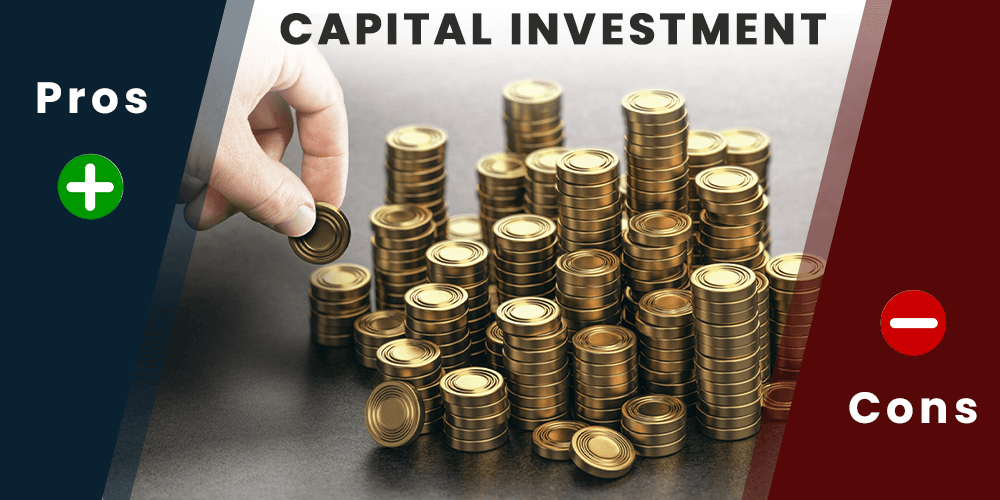Welcome to the exhilarating rollercoaster ride of startup life, where the pursuit of success often hinges on securing investment capital. But wait! Before you dive headfirst into the funding frenzy, let’s explore the crucial question of when to raise and when to hold back.
The worst position you can be in is having too much cash or debt spread around a wide range of owners. You want solid footing no matter where you are in your business’s development roadmap.
Why You Should Wait
1 – Have You Done the Homework?
Have you meticulously done your homework before you even think about raising capital? Conduct market research, analyze your target audience, and validate your business idea. Investors crave solid foundations, so make sure you have a compelling case for your startup’s potential.
2 – Are You Ready to Scale?
Investment capital is like rocket fuel for startups, propelling them toward rapid growth. But hold your horses! Is your business equipped to handle scalability? Do you have the infrastructure, resources, and team in place to support exponential growth? If not, take the time to fortify your operations before seeking funding.
3 – Can You Be Accountable to VC Ownership?
Venture capitalists (VCs) often require a stake in your company in exchange for their investment. This means relinquishing a degree of control and being accountable to your newfound partners. Ensure you’re comfortable with this arrangement and willing to collaborate with VCs to achieve shared goals.
4 – Does Your Structure Handle Debt?
While capital infusion can be a game-changer, assessing your startup’s ability to handle debt is crucial. Debt financing can provide stability and flexibility, but it also comes with repayment obligations. Evaluate your business’s financial health and weigh the pros and cons of equity versus debt financing.

When to Stop Raising Funds
1 – You’ve Reached an Ideal Position
Sometimes, reaching a certain milestone or attaining a favorable market position can signal that it’s time to pump the brakes on fundraising. If you have a solid product-market fit, a loyal customer base, and healthy revenue streams, focus on leveraging your existing strengths rather than chasing additional funding.
2 – You Have an Extended Burn Rate
If your burn rate is out of control and you find yourself burning through cash at an unsustainable pace, it’s time to pause and reevaluate your financial strategy. Make necessary adjustments to optimize your operations and streamline expenses before considering further funding.
3 – Your Growth Pace Outperforms Needed Funding
Congratulations if your startup is experiencing rapid growth that outpaces your current funding needs. Instead of constantly chasing funding rounds, focus on harnessing your organic growth momentum and maximizing your existing resources.
4 – You Have a Strong Cash Flow
A steady cash flow can be a lifeline for startups. If your business generates consistent revenue and achieves positive cash flow, it’s a sign of financial stability. Rather than diluting your equity, consider reinvesting profits into scaling your operations.
Need More?
Seed rounds generally span from 12 to 18 months, allowing startups ample time to establish themselves in the market. Investors typically anticipate traction levels between 0.1% to 0.5%, which demonstrate initial customer acceptance and validation.
Being categorized within these parameters or having dependable funding resources sets you up for success. However, achieving the right balance may require some experimentation and adjustments along the way. Effective resource allocation and meticulous accounting/bookkeeping are crucial for managing your startup’s seed funding and subsequent funding rounds.
When to Start
Regardless of your startup’s stage, if you need funding, it’s time to embark on the fundraising journey. However, ensure that everyone on your team is aligned, fully committed, and prepared to dedicate the time and effort required. Additionally, have all the necessary documentation, such as a solid business plan, financial projections, and pitch deck, ready to impress potential investors.
Deciding when to raise investment capital is a critical decision for startups. You can make informed choices by evaluating factors such as market readiness, scalability, ownership accountability, and financial structure.
Remember, there’s no one-size-fits-all approach—every startup’s funding journey is unique. Stay agile, adapt to market dynamics, and secure the investment that propels your venture to new heights of success. Now, go forth and conquer!
Ready to transform your startup dreams into reality? Look no further than BiztroGlobal! Our seasoned experts will guide you from idea to startup success. We provide tailored strategies designed to connect you with exceptional VCs and potential investors. Don’t let your brilliant ideas stay hidden—let BiztroGlobal illuminate your path to success. Join us today and embark on an entrepreneurial adventure like no other!
